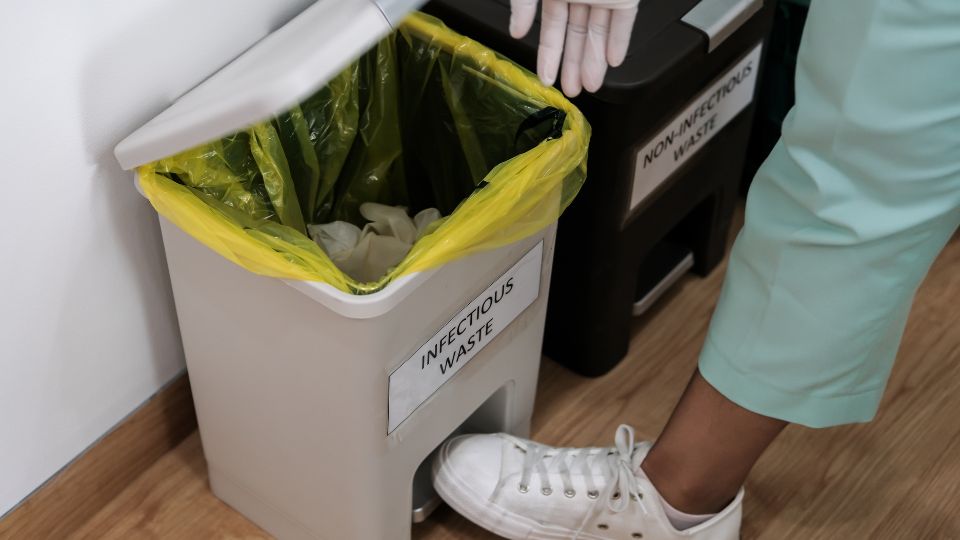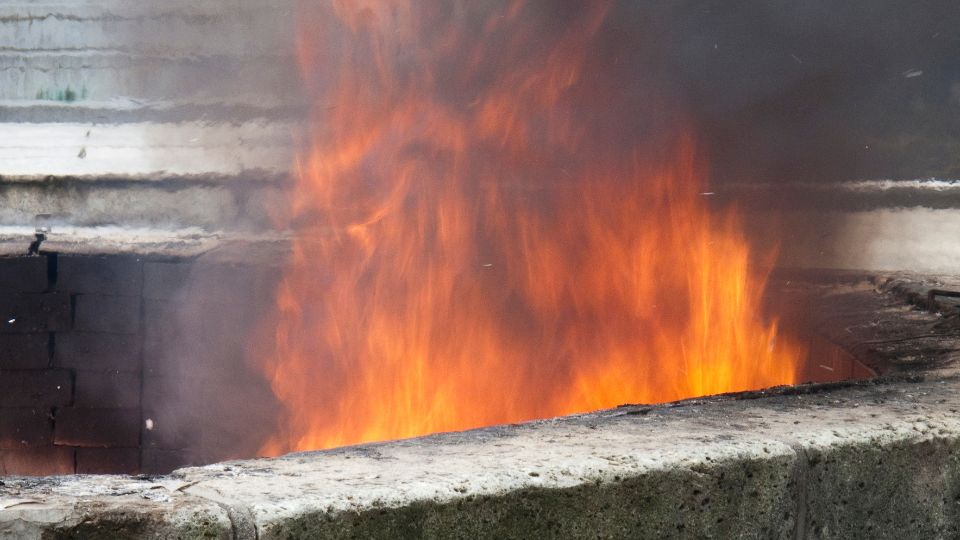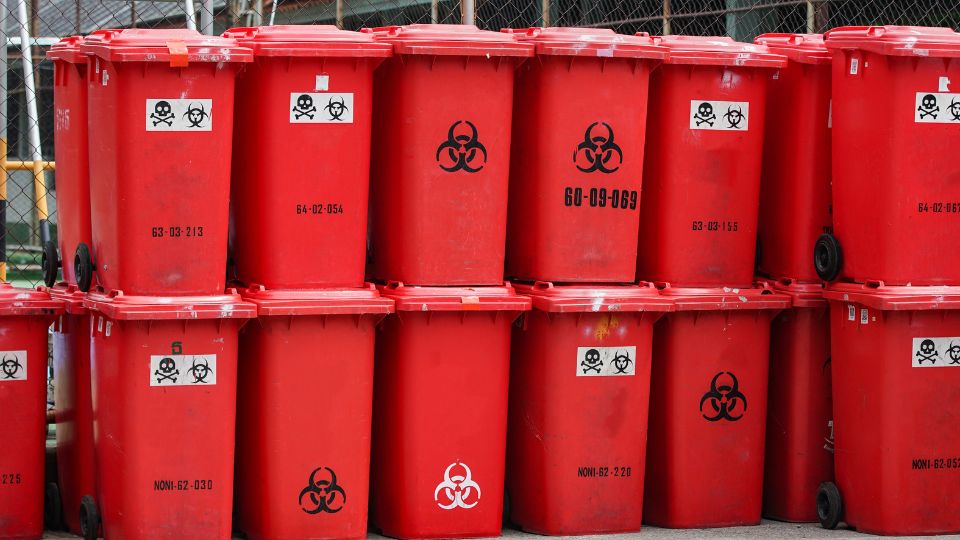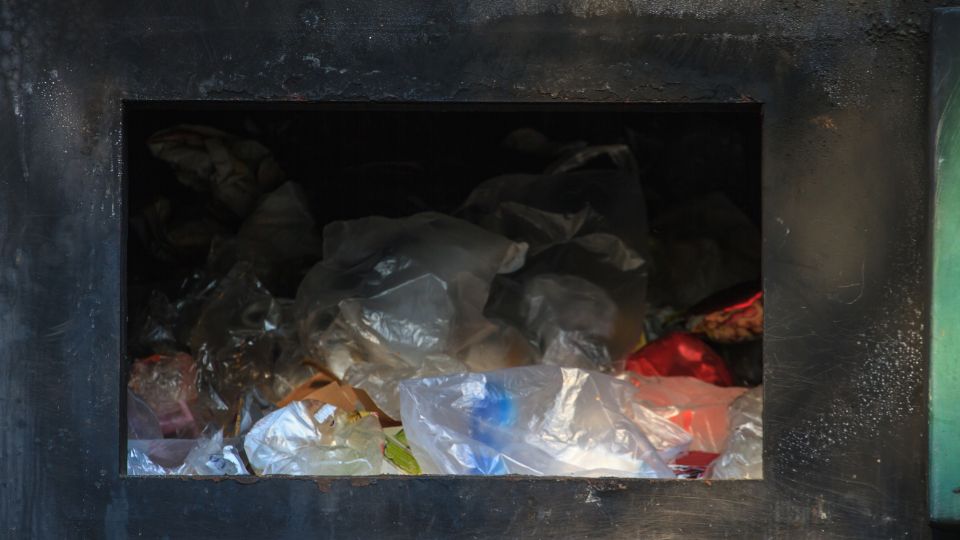
A Quick Summary:
- Key hospital wastes requiring incineration include hazardous materials and pharmaceuticals.
- Understanding the types of waste can ensure compliance and environmental safety.
- Proper waste management can reduce risks and improve sustainability practices.
Hospital waste management is a crucial aspect of the healthcare industry, ensuring that potentially hazardous materials are disposed of safely and responsibly.
For hospital or healthcare centres in the UK, understanding what hospital waste is incinerated is essential for regulatory compliance and environmental consciousness.
This blog discusses the types of hospital waste that are typically incinerated, why incineration is necessary, and how proper waste management practices can benefit your hospital or healthcare centre.
Table of Contents
- Types of Hospital Waste Incinerated
- Why Hospital Waste Incineration is Necessary
- Benefits of Hospital Waste Incineration
- Conclusion

Types of Hospital Waste Incinerated
Lots of different types of hospital waste is incinerated.
Here’s the most common examples below:
Hazardous Waste:
This category includes any waste that poses a significant risk to health or the environment.
Hazardous waste is typically incinerated to neutralise dangerous pathogens and chemicals.
Examples include:
- Infectious waste:
Items contaminated with blood or bodily fluids.
- Pathological waste:
Human tissues, organs, and body parts.
- Sharps waste:
Needles, syringes, and other sharp objects that could cause injury or infection.
Pharmaceutical Waste:
Unused or expired medications are considered pharmaceutical waste.
Incineration is the preferred method for disposing of these substances to prevent contamination of water sources and reduce the risk of drug misuse.
This includes:
- Prescription medications
- Over-the-counter drugs
- Vaccines and other biological products
Chemical Waste:
This includes substances used in hospital laboratories and diagnostic procedures.
Incineration helps to safely eliminate these chemicals, preventing potential harm to both humans and the environment.
Examples include:
- Laboratory reagents and solvents
- Disinfectants and sterilants
- Batteries and other chemical-containing products
Cytotoxic and Cytostatic Waste:
These are specific types of pharmaceutical waste, primarily consisting of cancer treatment drugs.
Due to their hazardous nature, they must be incinerated to ensure complete destruction of harmful components.

Why Hospital Waste Incineration is Necessary
Incineration is a crucial waste management strategy for hospital waste due to its ability to:
- Effectively Destroy Pathogens:
High temperatures ensure that all infectious agents are completely destroyed, minimising the risk of disease transmission.
- Reduce Waste Volume:
Incineration significantly reduces the volume of waste, making it easier to manage and dispose of.
- Prevent Environmental Contamination:
Proper incineration prevents harmful substances from leaching into soil and water, protecting the environment and public health.

Benefits of Hospital Waste Incineration
Understanding and implementing proper hospital waste incineration practices can offer several benefits:
- Regulatory Compliance:
Adhering to waste management regulations ensures your hospital or healthcare centre remains compliant with UK laws, avoiding fines and legal issues.
- Environmental Responsibility:
By ensuring safe disposal of hazardous waste, your hospital or healthcare centre can contribute to environmental sustainability and public health protection.
- Enhanced Reputation:
Hospitals or healthcare centres known for responsible waste management practices can attract more investors and charitable partners who value sustainability.

Conclusion
Proper management and incineration of hospital waste are essential for maintaining public health, ensuring regulatory compliance, and promoting environmental sustainability.
By understanding the types of waste that require incineration and implementing best practices, hospital or healthcare centres in the UK can contribute to a safer and cleaner environment while enhancing their reputation.
Investing in effective waste management strategies not only safeguards the community but also positions your hospital or healthcare centre as a responsible and forward-thinking entity in the healthcare sector.







